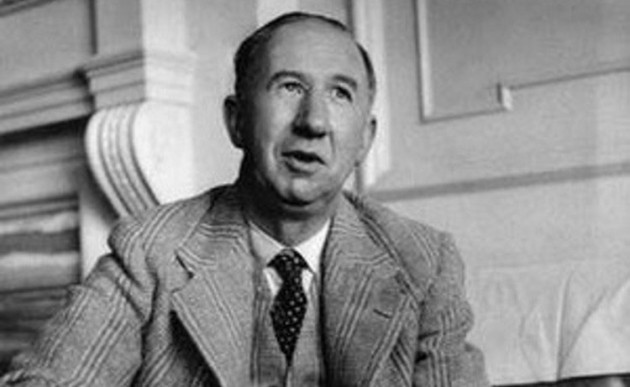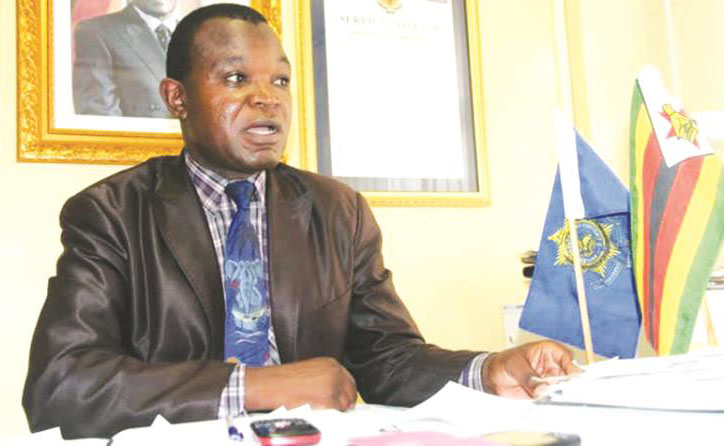Appreciating our own people when they excel

David Mungoshi Shelling The Nuts
THE old adage about not abandoning a home because it has become infested with vermin (rats and/or snakes) is instructive in a number of ways. When that predicament befalls you, you fix it. You disinfect your home and go on living in it. In a way I did just that recently, finding help at home.
What happened was that I found I could neither stand nor walk without assistance. My sudden incapacitation was the vermin and local health practitioners, the disinfectant!
Predictably, I was admitted into a clinic in town and overnight my problems disappeared as Winky D would say. All it took was a bit of intravenous paracetamol.
Miracles happen every day, but because they may not be of the spectacular kind, like the strike of lightning, we generally do not recognise such occurrences as being miraculous. We want to be stunned and amazed and so utterly flabbergasted that we lie prone and speechless. My miracle was not the loud type, but it made me walk again unassisted. Two women physiotherapists showed me exercises to help with my rehabilitation in the quickest possible time.
As part of my treatment protocol I needed to be taken to a private surgery to have a certain procedure done on my knee. A female ambulance assistant in a smart uniform entered my ward in the company of a male assistant, who also happened to be the ambulance driver.
With obvious expertise the two got me up a bed they had brought along. In no time I was being wheeled to the ambulance where I was made comfortable. We then took off bound for the surgery where I was to be attended to.
Once inside the ambulance, which I must say was a modern one with the necessary accessories for all kinds of accidents and emergencies or just medical situations.
Mrs Khethiwe (not her real name) proceeded to check my blood pressure as we made our way down the street to park outside our destination and wait for my turn in the treatment room.
When I spoke about just how impressed I was with the way the ambulance crew conducted business I learned something that still makes me smile with unadulterated pride. In times like these it always feels good to be alive and to be Zimbabwean.
Nothing beats a sense of belonging! If you doubt this talk to anyone who has been a victim of xenophobia across the Limpopo or elsewhere. They will most likely say to you,” Kusina mai Hakuendwe” (it is foolish to go where your mother isn’t).
And they might even say they now know why a dog can snarl although it cannot laugh. Such tales are tales of absolute brutalisation and ridicule.
On one occasion, Mrs Khethiwe and Mr Muremba (not his real name), drove to the airport to handle an emergency case aboard one of the flights that was due to land.
The case was a very serious one indeed because the passenger now turned patient was an ICU (Intensive Care Unit) case. As always, in such cases, the needy passenger receives help after everyone else has disembarked. The passenger in question was so obviously ill that a woman passenger from Australia became curious about what would happen.
She hung around and witnessed our fabulous ambulance crew take control: receiving the patient and getting her gently but urgently on board the ambulance, checking her pulse, temperature and blood pressure, and making sure that she was not further distressed.
By this time the totally surprised Australian was going click, click and click with her camera. She said she couldn’t believe that this was Zimbabwe, or that Zimbabwe had ambulances manned by doctors. To her, these images were discordant with the stereotypes in her mind.
Out there the perception is that nothing works in Zimbabwe. Kudos to all the good people who do their best against heavy odds and especially to our learned physicians and physiotherapists.
In the Bible in Matthew Chapter 6, verse 34 (King James Version) Jesus is recorded as having said:
Take therefore no thought for the morrow; for the morrow shall take thought for the things of itself. Sufficient unto the day is the evil thereof.
Prior to my admission at the private clinic, many, including myself, had been in a state of trepidation concerning my being taken so suddenly ill and my becoming so suddenly incapacitated as well.
But, clearly, I was engaging in an exercise in futility. Tomorrow did take care of its woes, and here I am today, normal as ever in my walking and in my gait. It is clear that whatever anxieties I may have had were totally misplaced. The way things turned out I had no reason whatsoever to have been worrying. I was always in good hands. Today I am convinced that we must appreciate home-grown talent and expertise ahead of outsiders.
When we disregard the principle of charity/recognition beginning at home we are bound to lose something in the end. Loving one’s home can easily be extended to loving one’s country and wishing the best for that country.
Take, Gokwe for instance, with the white gold in decline these past few years, there is perhaps nothing to really write home about except perhaps when you start thinking about the dryness, the remoteness, the mosquitoes and the elephants.
Yet Edwin Hama’s eulogy of Gokwe in his inimitable song, “Home Sweet Home” is both sincere and authentic. Hama takes us around Gokwe and lingers around familiar places including the growth point’s only night club: Talk of Gokwe. The man loved his home in spite of everything.
People think Gokwe is a perennial backwoods. Yet at the growth point, as in Neville Shute’s Alice Springs, a girl can have her hair done and she can buy ice-cream lollies and turn her tongue red. Why, there’s even yoghurt and fish and chips.
There are ‘tribesmen’ out there who can cure snakebites from the deadliest of vipers without ever having to stand up from their stools. They do small cuts in area approximating the location of the bite, and they do this on the person who comes to report the incident.
Into these small incisions they rub a little something whose active ingredients only they know.
Without exception, the victim of the snakebite survives the ordeal. Yet hardly anyone has taken the trouble to research these miracles, choosing instead to treat them as superstition. Nobody cares much about indigenous knowledge systems or the gems they contain.
This is due to, in many cases, our lack of self-appreciation and our propensity for self-denigration. People belittle themselves at every turn. The good news is that there really is no need for that. We can and must stand tall among other nations, regardless.
It would be a travesty if in this 21st Century our artistes become legitimate only if the outside world clamours for them, like the Bundu Boys and even John Chibadura.
The yuppies of this land and the nose brigades would rather have been seen dead than sing along or dance to “Faka pressure/ Kuroja chete”. But when it became fashionable to be a Bundu fan these same people were loudest in their support.
Without doubt John Chibadura’s trip to the UK helped give sungura music the international identity from which today’s stars in Zimbabwe are benefiting. In many ways Chibadura, a showman of great depths, was the first really big music star in Zimbabwe with nearly each new hit single reaching unprecedented heights and earning him fabulous money and the nickname Mr Chitungwiza.
These are the things that we now know and realise.
We must not continue to condemn those in whom indigenous knowledge is reposed. The fate of Dr Sebi of the Honduras and his alkaline diets plus other revolutionary ideas should never ever be duplicated elsewhere.
Let us embrace and encourage our own. Out there, they think that everything is a total disaster and are shocked with disbelief when you speak of our Siamese twins getting separated at an ordinary Government hospital. What that means is that we are not short of knowledge or skills.
That we have aplenty. Given the necessary equipment we do wonders.
Let me get back to my story outside the private surgery where a specialist procedure was going to be done on my knee. Shakespeare’s Julius Caesar it was who said cowards die many times before their actual death.
Fear of the unknown is probably more painful than the pain itself. When finally I was wheeled in feeling like an animal being led into an abattoir, I discovered that there was nothing to fear at all.
The nurses were friendly and efficient and the doctor worked with precision. It was over in 15 minutes and I was none the worse for tear. Once again my people had excelled. What a wonderful thing!
David Mungoshi is an applied linguist and writer.












Comments